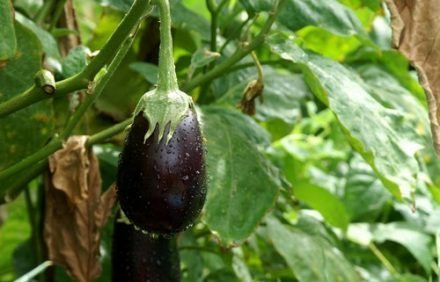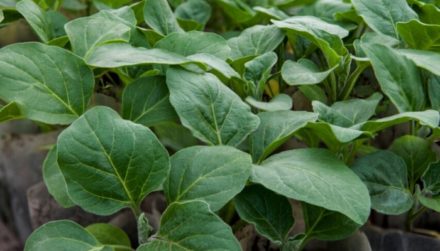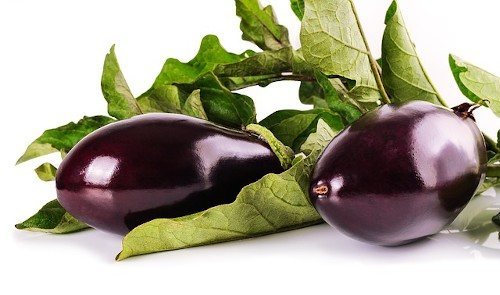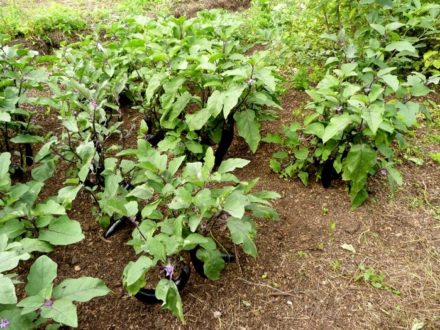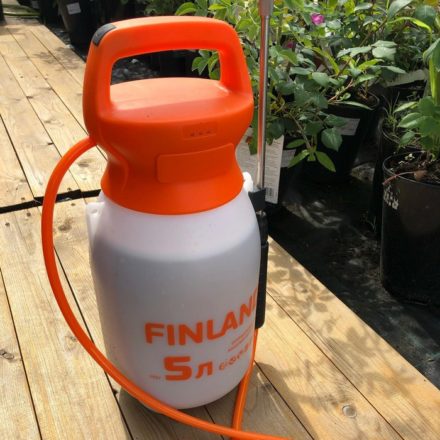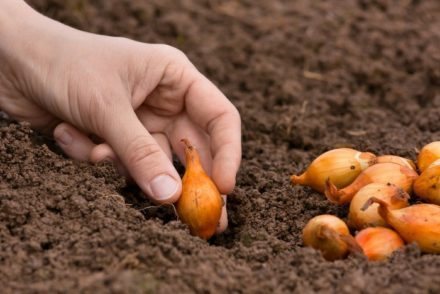Heat-loving eggplants need special conditions for development and fruiting. Summer residents care for and nurture plants from the moment of planting. In most regions, eggplants are grown in seedlings, planted in a greenhouse. The moment of transplanting into the ground is very important. It is important not only to follow the planting pattern, but also to place a mixture of fertilizers in the holes. The supply of food will enable eggplants to actively grow and develop. Proper feeding will also help bring the harvest closer.
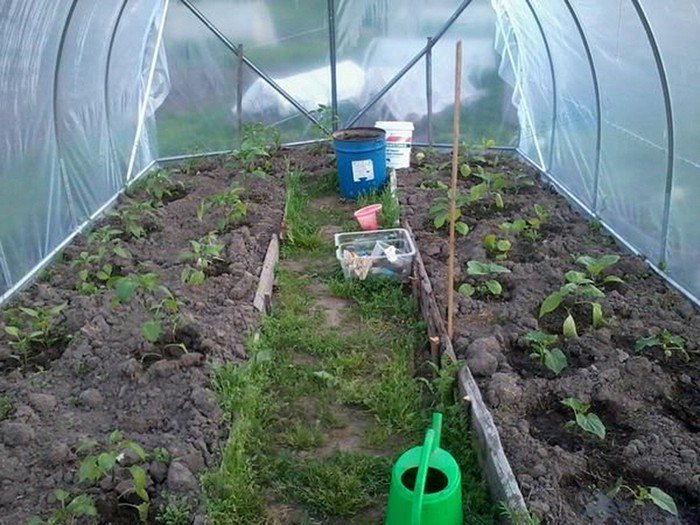
Options for starting feeding for eggplants
Eggplants are among the crops that greatly deplete the soil, so the role of fertilizers for them is difficult to exaggerate. Plants can absorb nutrients from organic matter and minerals. Summer residents themselves determine the type of feeding based on their capabilities.
For example, manure is not always available; it can be replaced with industrial fertilizers. A combined composition of fertilizing is also acceptable. The main thing is to provide eggplants with a large dose of nitrogen at the beginning of the season. This feeding will promote rapid growth of shoots and leaves. Vigorous plants have a better chance of bearing fruit earlier.
Closer to flowering, the blue ones will need fertilizing with a predominance of potassium and phosphorus. An effective remedy such as wood ash will also stimulate growth.A few days before planting the seedlings, it is advisable to water the soil with one of the EM preparations:
- "Baikal-EM";
- "Siyanie";
- "Tamir";
- "Emix".
Their application improves the quality of the soil due to the reproduction of beneficial microorganisms. As a result, eggplants will be able to absorb nutrients more fully.
Organic substances
Manure is one of the most valuable organic fertilizers. In fresh form, it is added to the soil in the fall. Over the winter, the organic matter rots and becomes safe for plants. Fresh manure may contain weed seeds, pathogens, and pest larvae.
When applied in the spring, humus is used (manure that has rotted for 1-2 years). The fertilizer supplies plants with nitrogen, which stimulates their growth. The immunity of seedlings is strengthened. No more than 1-2 handfuls of humus are thrown into each hole. A thin layer of soil should separate the fertilizer from the roots of the seedlings so that there is no direct contact between them.
If the soil is sandy, then peat is added to the hole. This organic fertilizer is suitable for light soils, as it improves their structure, prevents nutrients from being washed out during rain and watering. When applied, peat is mixed with sand.
Peat contains mineral compounds, humus, and plant residues. Thanks to such feeding, crop yields improve. Depending on the acidity of the soil, different types of peat are used. If the acidity is high, lowland peat is used, while high-moor peat is more suitable for alkaline soil.
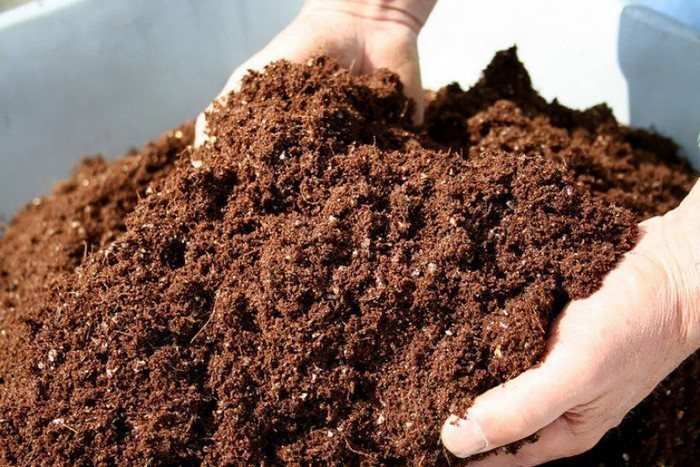
Wood ash
Wood ash cannot be classified as an organic or mineral fertilizer.Ash is a non-combustible residue obtained as a result of burning wood. Wood ash is irreplaceable in the garden, as it is a source of a large number of macro- and microelements. It is enough to put 2 tablespoons of ash powder in one hole.
Ash will enrich the soil with:
- potassium;
- magnesium;
- phosphorus;
- calcium;
- sulfur;
- boron.
In addition, ash has antiseptic properties, has a detrimental effect on bacteria and fungal spores, and repels insect larvae. The presence of such fertilizer in the soil promotes rapid growth of the root system of eggplants, which has a beneficial effect on the future harvest.
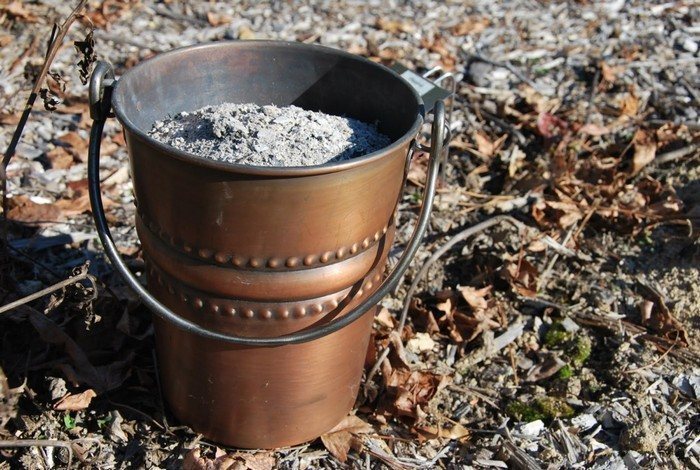
Mineral mixtures
Mineral fertilizers such as ammonium nitrate and urea will help supply young eggplants with nitrogen. Both substances cannot be used simultaneously with humus. You need to choose one or the other. Both urea and ammonium nitrate are well absorbed by plants, promoting their rapid growth.
Fertilizers are available in granules. It is enough to add 1 teaspoon of urea or nitrate mixed with wood ash and superphosphate per plant.
Superphosphate is a popular source of phosphorus for garden plants. The fertilizer is commercially available and inexpensive. Phosphorus helps to strengthen the root system. Superphosphate should be added at all stages of eggplant development, starting from the planting stage. The macronutrient helps to increase the yield of eggplants, improves the taste of the fruit. Fertilizer is often given as part of a complex feeding.
You can use ready-made industrial preparations, for example, Vesna or Fertika Universal-2 fertilizers for vegetables. Add 1 tbsp to each well. l. nutrient mixture. In this case, other mineral fertilizers are no longer used.
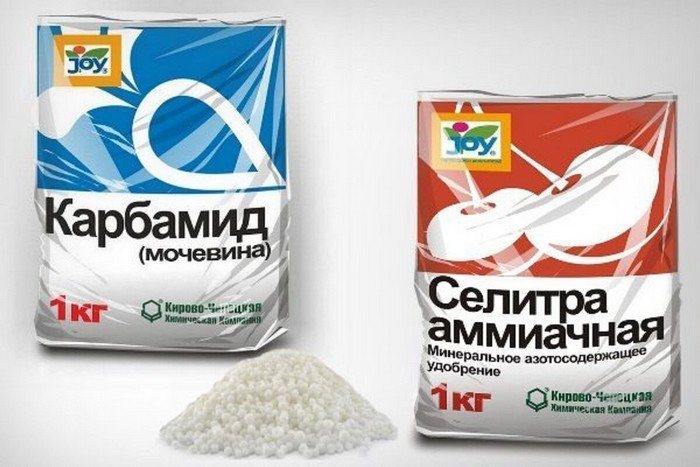
Starter feeding for eggplants is necessary, but it will not be enough for a long time. As soon as the plants take root in the soil, you will need to apply fertilizer again. It is customary to alternate organic matter and minerals with each other. Additionally, plants are provided with watering, loosening, and weeding. Comprehensive care will certainly bring the harvest closer and improve its quality.


